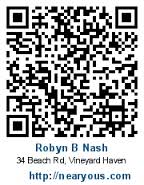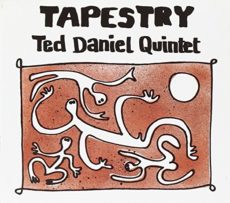
Daily Dose Of Jazz…
Ted Daniel was born June 4, 1943 in Ossining, New York and studied trumpet in elementary school. He began his professional career playing local gigs with his childhood friend, guitarist Sonny Sharrock. He briefly attended Berklee School of Music and Southern Illinois University, before a tour of duty with U.S. Army Bands. After his discharge from the Army, Daniel attended Central State College in Ohio, on a full music scholarship, where he met and studied with Dr. Makanda Ken McIntyre. After a year, Daniel returned to New York City and eventually received a bachelor of music degree in theory and composition from the City College of New York.
Beginning his recording career while studying in Ohio he returned briefly to New York to record Sonny Sharrock’s first album Black Woman. His second recording was with the band Brute Force that he co-led with his brother, Richard. The recording was titled Brute Force on the Embryo label and was produced by Herbie Mann. Since then, Daniel has participated in more than 30 published recordings with such artists as: Archie Shepp, Dewey Redman, Andrew Cyrille, Sam Rivers, Billy Bang, Tatsuya Nakamura and Henry Threadgill.
Daniel has produced three albums under his own name: The Ted Daniel Sextet on Ujamaa Records, Tapestry on Sun Records, and In The Beginning on Altura recordings. This recording features a twelve-piece ensemble including such artist as Oliver Lake, Arthur Blythe, Charles Tyler and David Murray. Eventually this ensemble evolved into a larger group called “Energy”.
As an educator Ted has held workshops at Amherst College, Bennington College, Williams College and the University of Hosei in Tokyo, Japan. He has also conducted a seminar in Madrid, Spain, as well as work in his community conducting summer music workshops for high and college age students.
Daniel has received a NEA compositional grant, was awarded Talent Deserving Wider Recognition from Downbeat Magazine. Presently, trumpeter Ted Daniel is writing and performing with his new group, the International Brass and Membrane Corporation (IBMC).
Sponsored By
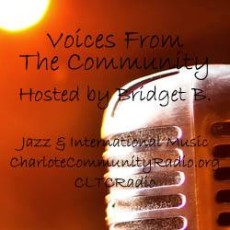
Voices From The Community
![]()
#preserving genius
More Posts: trumpet
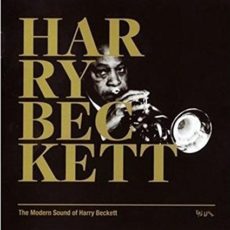
Daily Dose Of Jazz…
Harry Beckett was born Harold Winston Beckett on May 30, 1935 in Bridgetown, Saint Michael, Barbados and learned to play music in a Salvation Army band. Moving to the United Kingdom in 1954, he already had an international reputation and in 1961, he played with Charles Mingus in the film All Night Long. The 1960s saw Harry working and recording as a member of bassist and composer Graham Collier. By 1970 he was leading his own groups and recording for Philips, RCA and Ogun Records among other labels.
He was a key figure of important groups in the British free jazz/improvised music scene, including Ian Carr’s Nucleus, the Brotherhood of Breath and The Dedication Orchestra, London Jazz Composers Orchestra, London Improvisers Orchestra, John Surman’s Octet, Django Bates, Ronnie Scott’s Quintet, Kathy Stobart, Charlie Watts, Stan Tracey’s Big Band and Octet, and Elton Dean’s Ninesense.
He has also recorded with Keef Hartley, Jah Wobble, David Sylvian, Barry Guy/The London Jazz Composers’ Orchestra, Oliver Nelson and David Murray. Not limiting himself to jazz , Beckett toured abroad with Johnny Dyani, Chris McGregor, Keith Tippett, John Tchicai, Joachim Kühn, Dudu Pukwana’s Zila, George Gruntz’s Bands, Belgian quintet The Wrong Object, Pierre Dørge’s New Jungle Band and Annie Whitehead’s Robert Wyatt project, Soupsongs, which also featured Phil Manzanera and Julie Tippetts, among other jazz and rock luminaries.
In 1972 he won the Melody Maker Jazz Poll as Top Trumpeter in Britain and was a member of the Orchestre National de Jazz between 1997 and 2000. His dub-oriented album, The Modern Sound of Harry Beckett, was released on On-U Sound in 2008. Trumpeter and flugelhornist and composer Harry Beckett passed away on July 22, 2010 after suffering a stroke.

#preserving genius
More Posts: flugelhorn,trumpet
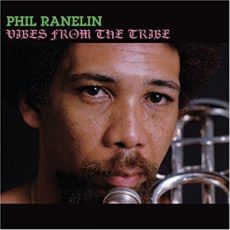
Daily Dose Of Jazz…
Phil Ranelin was born May 25, 1939 in Indianapolis, Indiana and lived in New York City before moving to Detroit, Michigan in the 1960s. He worked as a session musician on many Motown recordings, including with Stevie Wonder.
In 1971, he and Wendell Harrison formed a group called The Tribe, which was an avant-garde jazz ensemble devoted to black consciousness. Alongside it he co-founded Tribe Records. He released several albums as a leader in the 1970s, and continued with The Tribe project until 1978. Following this, Ranelin worked with Freddie Hubbard, Freddie Redd and the Red Hot Chili Peppers..
Working for the most part locally around Detroit in the following decades, Phil did not find widespread acceptance among jazz aficionados. He did, however, eventually gain the attention of rare groove collectors who became increasingly interested in his work. As a result, Tortoise drummer John McEntire remastered some of his older material and re-released it on Hefty Records. He also recorded on Lifeforce, Wide Hive and Rebirth record labels.
Trombonist Phil Ranelin continues to perform, compose, and record.
Sponsored By
#preserving genius
More Posts: trombone
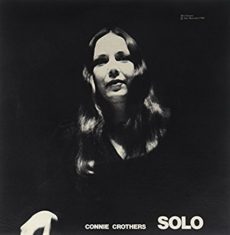
Daily Dose Of Jazz…
Connie Crothers was born on May 2, 1941 in Palo Alto, California and began studying classical piano at age 9. She went on to major in music and composition at the University of California at Berkeley. While matriculating her teachers put less emphasis on emotional expression and more on procedure, structure and compositional rigor, which did not find a likeable place in her mind.
She subsequently became a student of pianist Lennie Tristano. After Tristano’s death in November 1978, she founded the Lennie Jazz Foundation and recorded a memorial concert album in his honor.
Her debut recording Perception was released in 1974 on the Steeplechase label. She went on to record another twenty albums as a leader over the course of her career and four as a sidewoman. In 1982 she recorded the album Swish with drummer Max Roach for New Artists Records, a label she and Roach founded. She also recorded in groups with, among others, Bud Tristano, Linda Satin, Richard Tabnik and Cameron Brown.
Pianist Connie Crothers, who mainly played in the avant-garde and free jazz genres, passed away of lung cancer in Manhattan, New York City on August 13, 2016.

#preserving genius
More Posts: piano
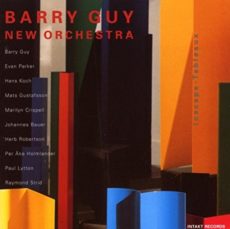
Daily Dose Of Jazz…
Barry John Guy was born April 22, 1947 in London, England and came to the fore as an improvising bassist as a member of a trio with pianist Howard Riley and drummer Tony Oxley in 1969. He also became an occasional member of John Stevens’ ensembles in the 1960s and 1970s, including the Spontaneous Music Ensemble.
By the early 1970s, he was a member of the influential free improvisation group Iskra 1903 with Derek Bailey and trombonist Paul Rutherford and in the late Seventies was revived with violinist Philipp Wachsmann, replacing Bailey. Guy, saxophonist Evan Parker, and drummer Paul Lytton became one of the best-known and most widely travelled free-improvising trios of the 1980s and 1990s.For a brief time he was a member of the Michael Nyman Band in the 1980s, performing on the soundtrack of The Draughtsman’s Contract.
Guy’s improvisation and formal composition interests led him to the London Jazz Composers Orchestra, originally formed to perform his composition Ode in 1972. The orchestra became one of the great large-scale European improvising ensembles. Though documentation is sketchy early on, in the late 1980s the Swiss label Intakt set out to document the band more thoroughly, resulting in several recordings.
He has also written for other large improvising ensembles, such as the NOW Orchestra and ROVA. Having taught at Guildhall School of Music, double bassist Barry Guy is currently improvising in piano trios with Marilyn Crispell and Agusti Fernandez, recorded several albums for ECM, continues to venture into the pop field with his session work, and along with his wife, run the small label Maya, which releases a variety of records in the genres of free improvisation, baroque music and contemporary composition.
#preserving genius
More Posts: bass


